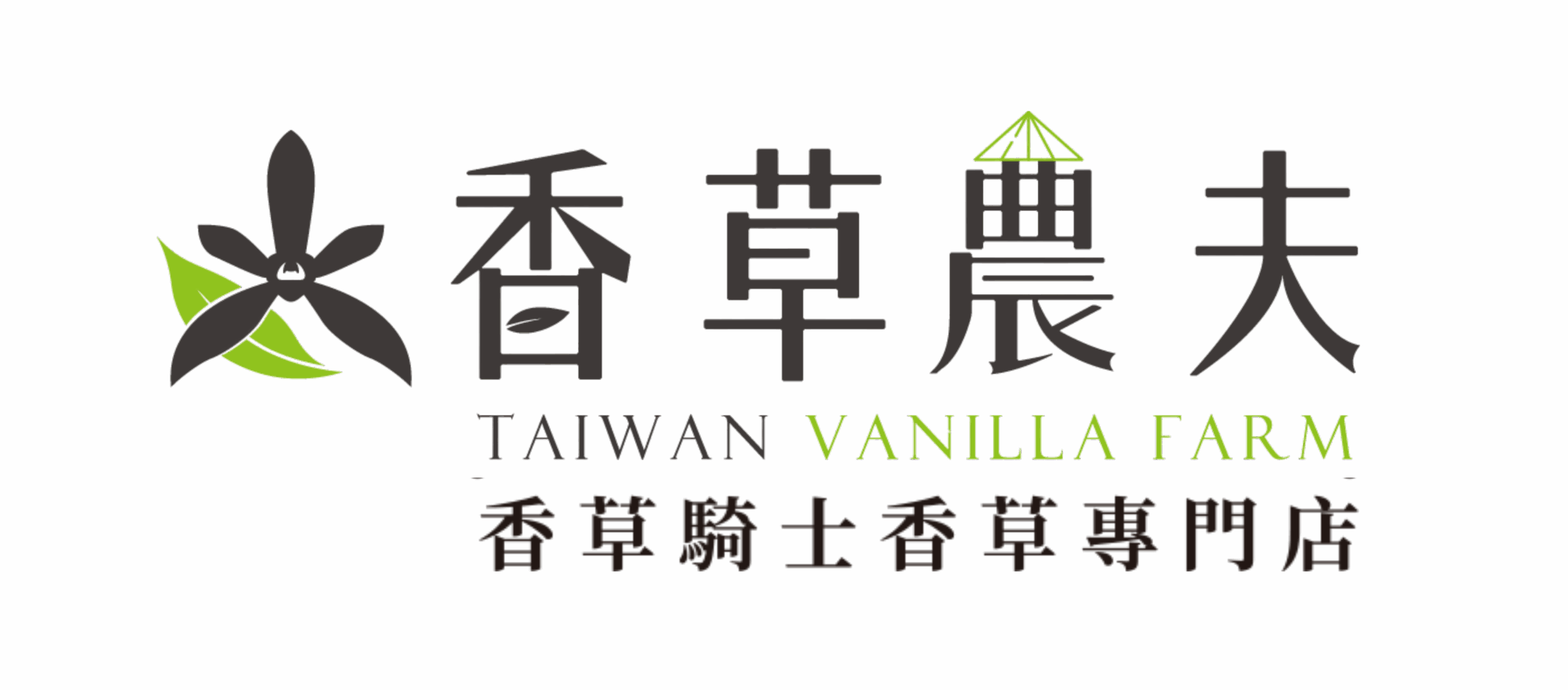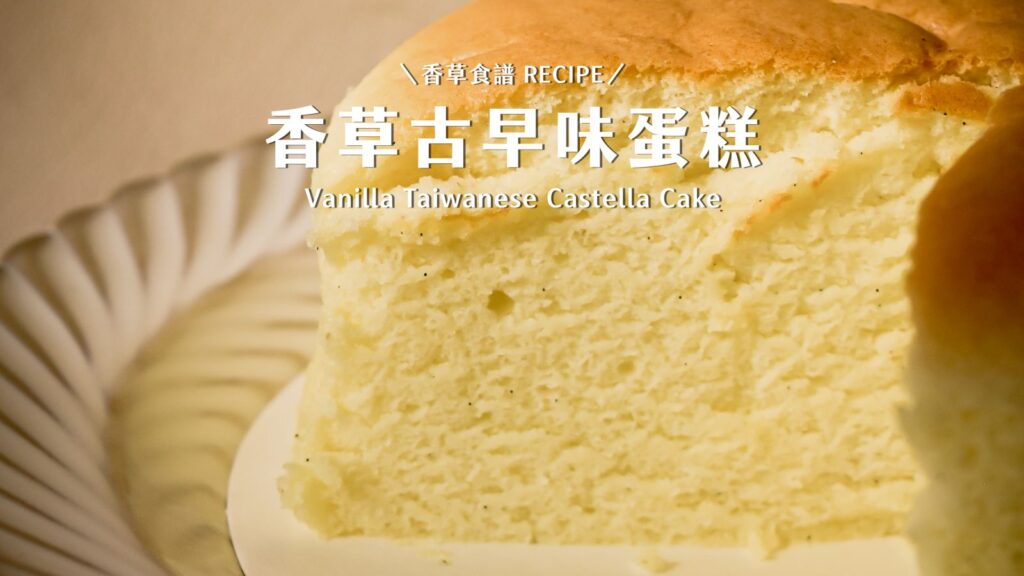Vanilla Castella Cake for Beginners
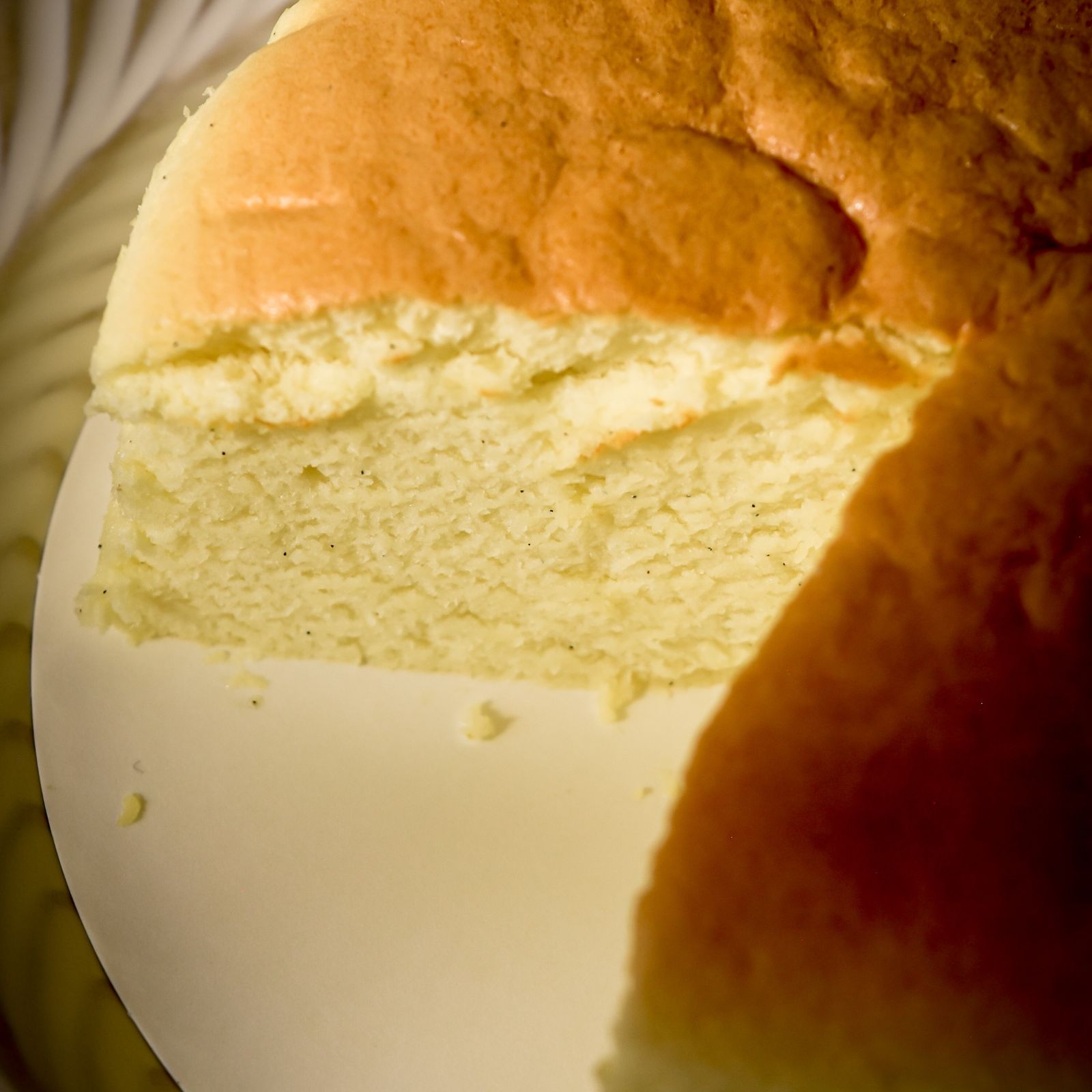
The soft, delicate texture and simple, rustic flavor of Castella Cake are widely loved. By combining the natural aroma of Taiwanese vanilla beans, this traditional cake gains a touch of sweetness and elegance. The traditional method involves whipping egg whites to incorporate air, then combining with other ingredients to create a melt-in-your-mouth texture. Easy to make with a rich, fluffy texture, the addition of Taiwanese vanilla beans gives the cake a natural, sweet fragrance!
Ingredients for Castella Cake
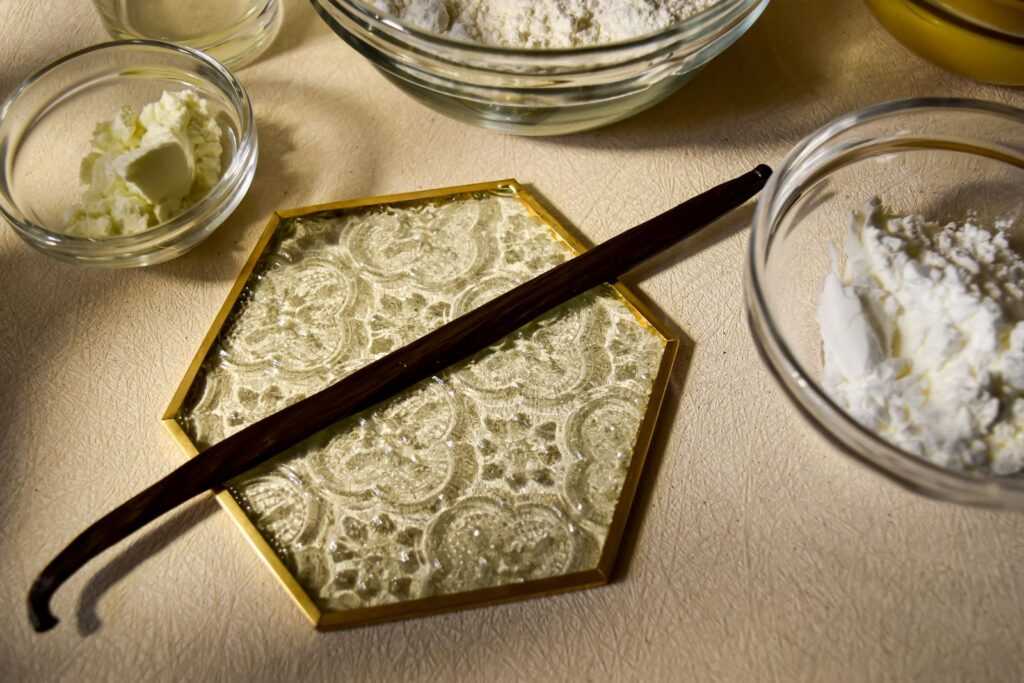
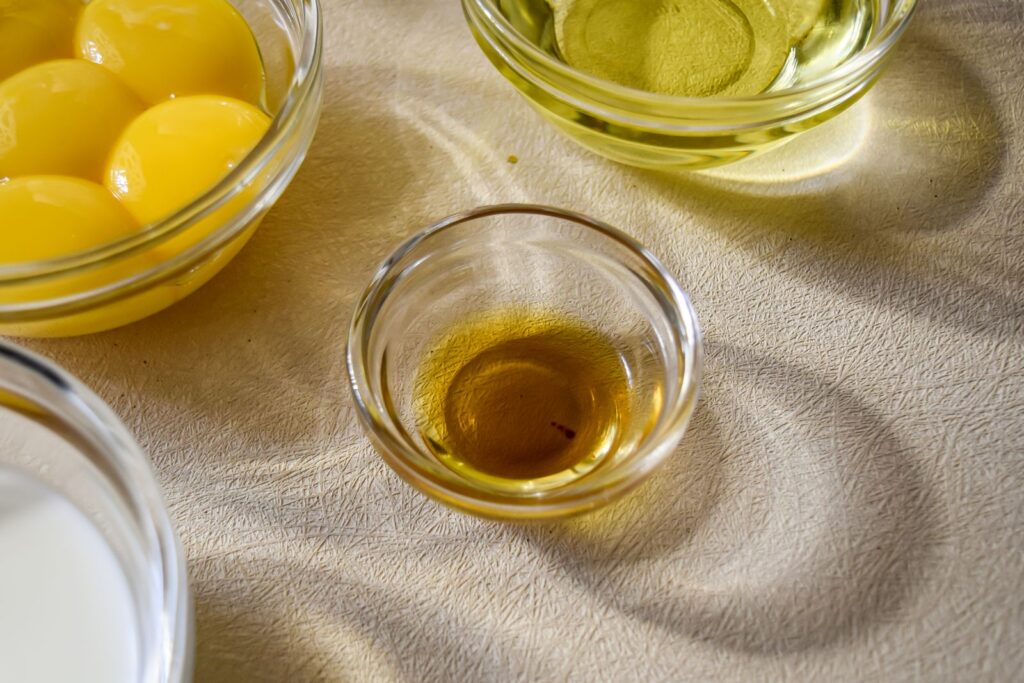
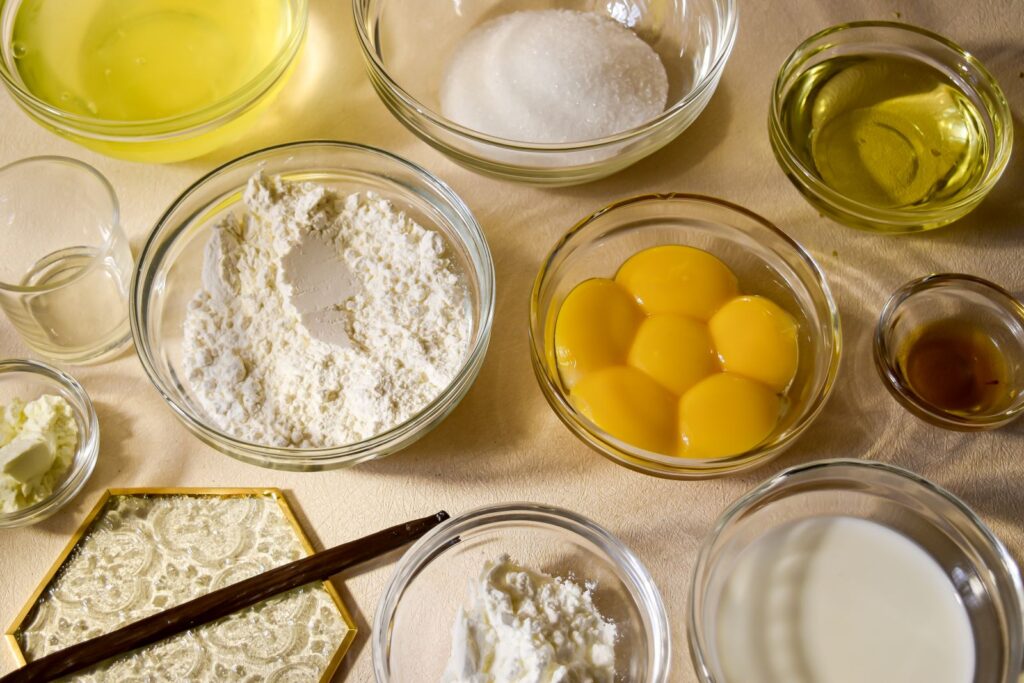
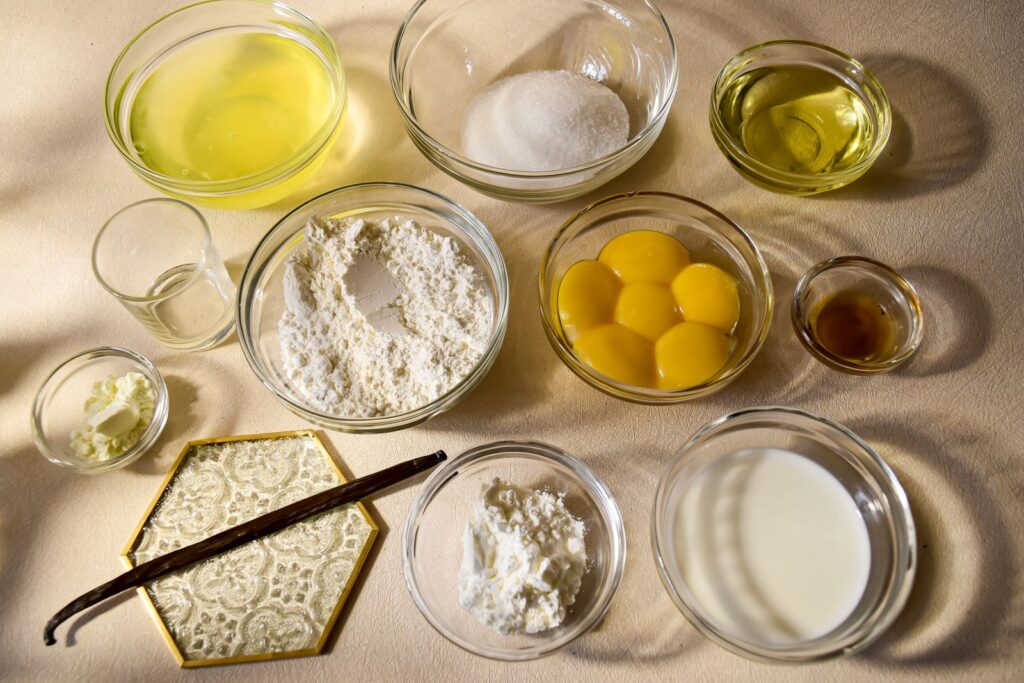
Ingredients:
- Grapeseed oil: 75g 75g
- Cake flour: 75g
- Cornstarch: 12g
- Milk: 60g
- Egg yolks: 100g
- Vanilla extract: 5g
- Egg whites: 200g
- Lemon juice: 5cc
- Granulated sugar: 65g
- Taiwanese vanilla bean: 1 pod
- Hokkaido buttermilk powder: 5g
Optional Addition: Buttermilk powder enhances the buttery aroma, fluffiness, and softness of the cake, elevating its texture.
How to Choose Vanilla Products
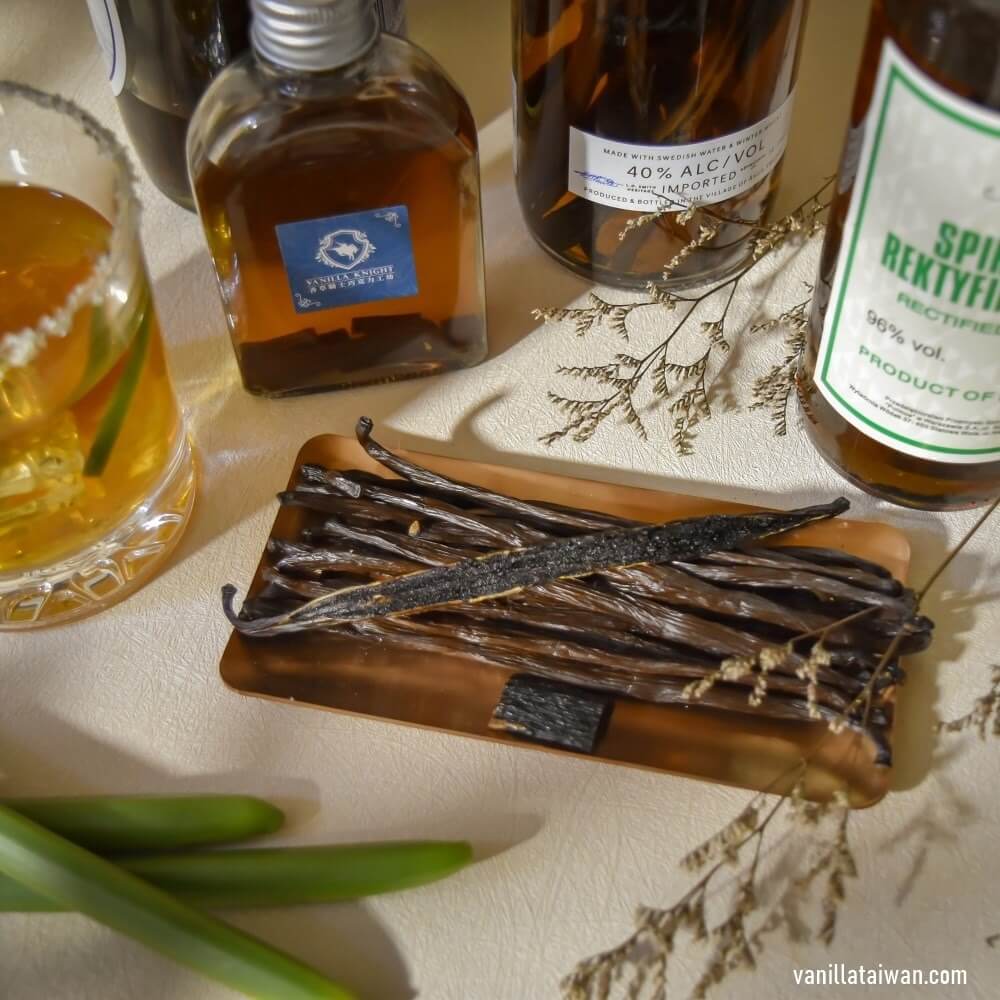
In making Castella Cake, both vanilla extract and vanilla sugar are commonly used. You can make both using vanilla beans yourself, which is much cheaper than buying ready-made products. To save costs, short vanilla beans are recommended; although they contain fewer seeds, they provide almost the same flavor for vanilla extract and vanilla sugar. Of course, you can also use standard 16-18 cm vanilla beans. The Vanilla Farmer offers a special set of vanilla beans for making extract and also sells short vanilla beans. Feel free to click the links to explore!
How to Make Castella Cake
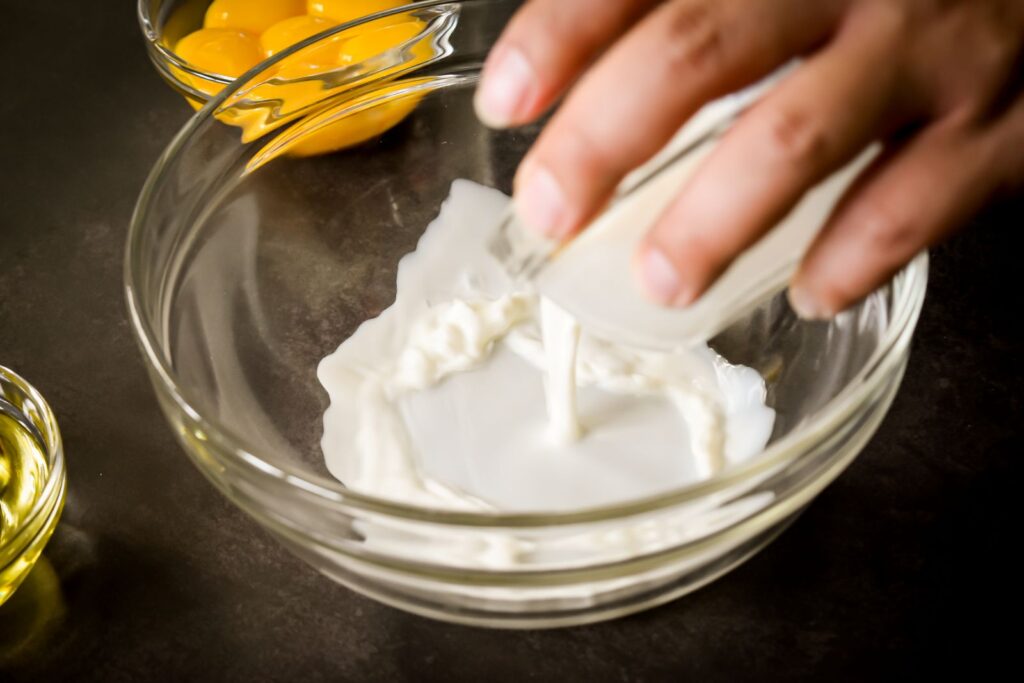
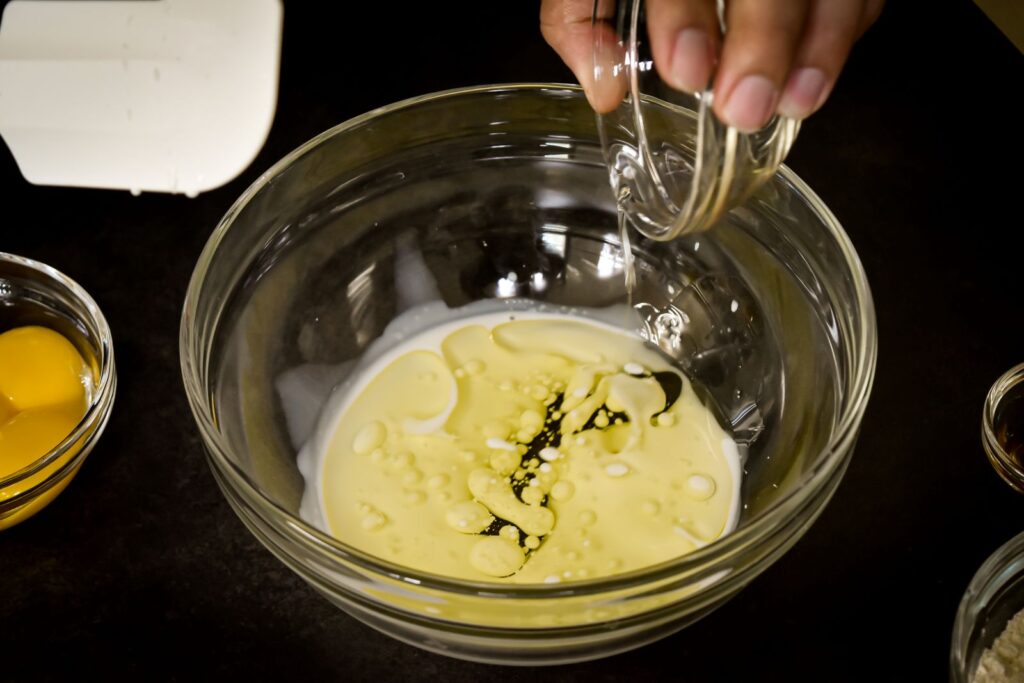
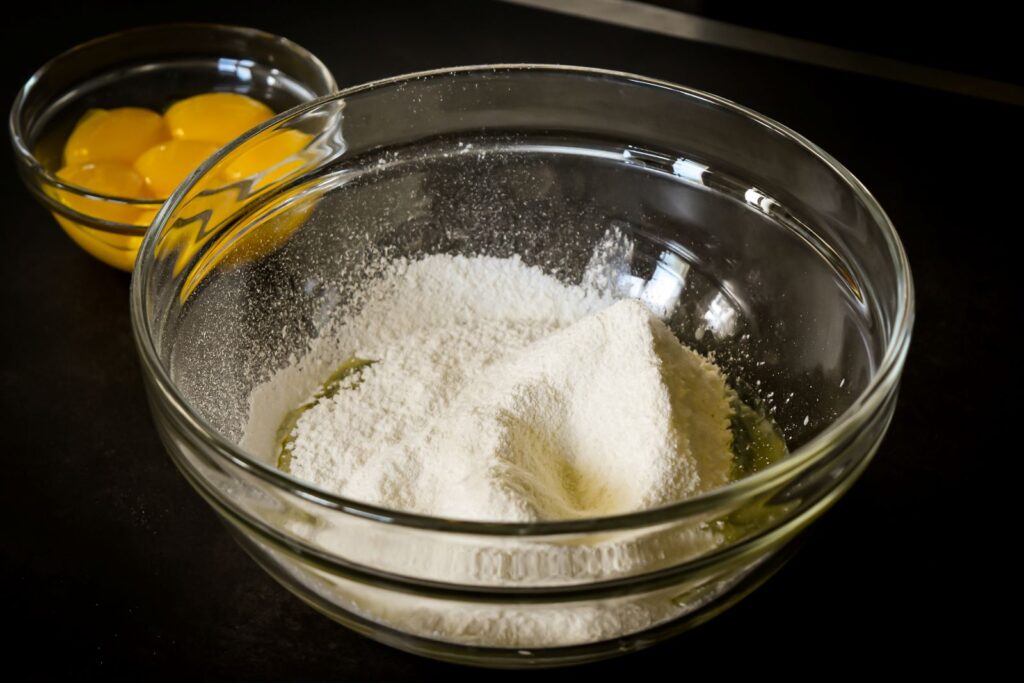
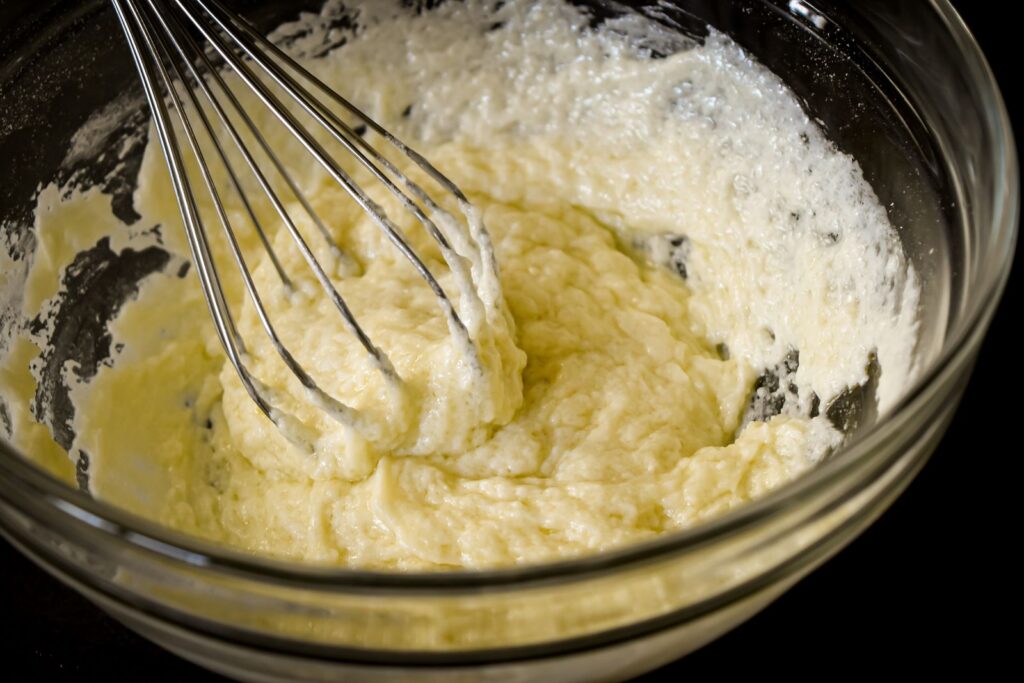
Prepare the Batter
Mix milk, grapeseed oil, cake flour, cornstarch, and buttermilk powder until smooth without lumps.
Sifting the dry ingredients prevents clumps and ensures a smoother batter.
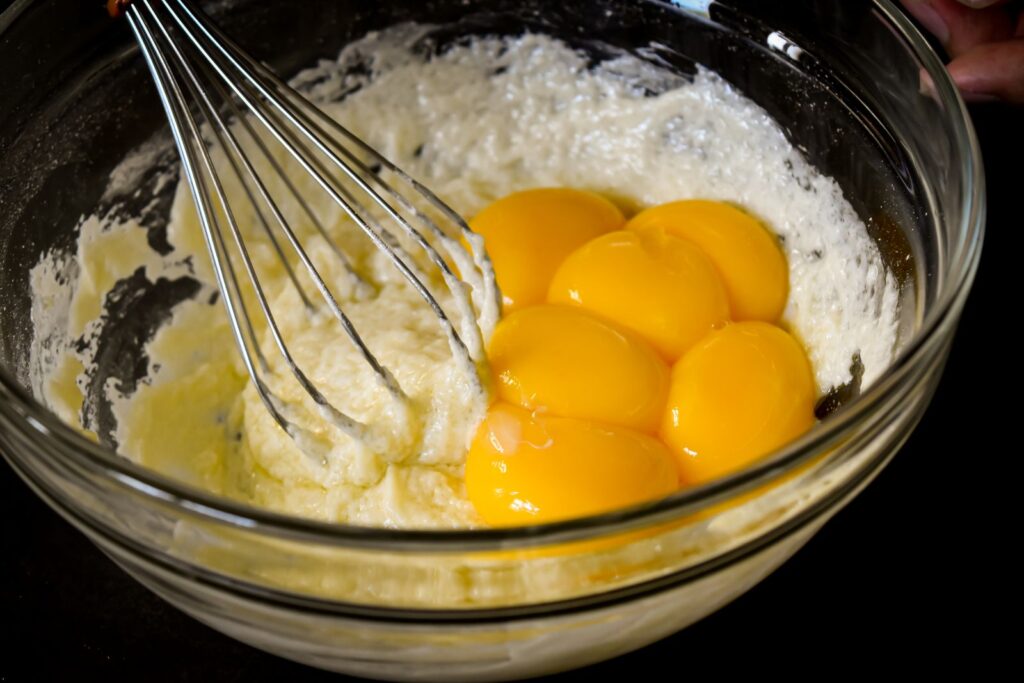
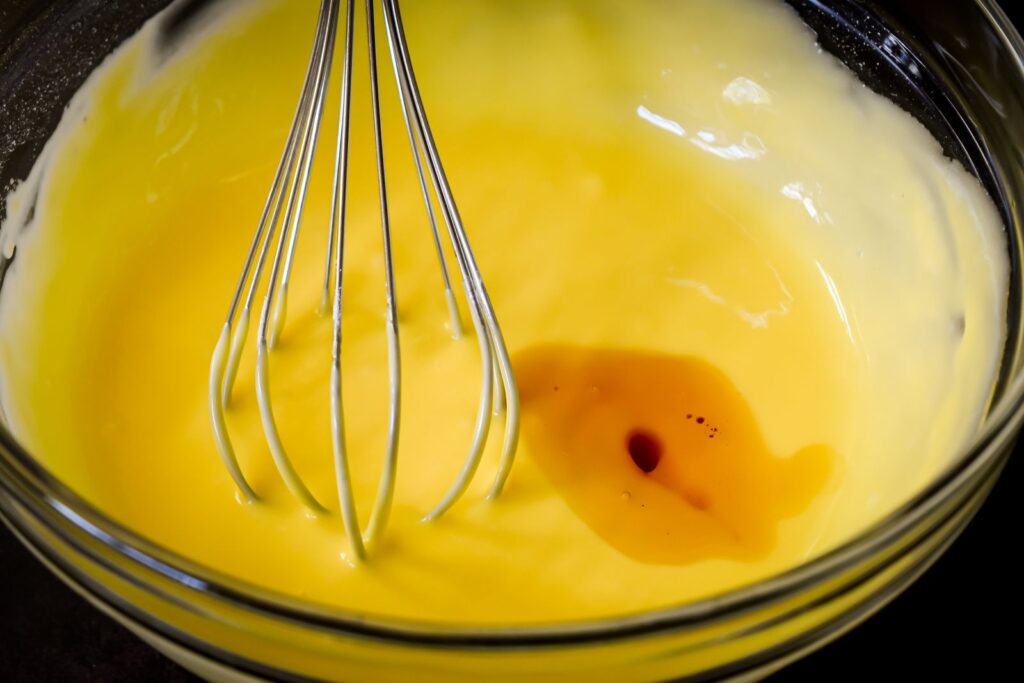

Add Egg Yolks and Vanilla Extract
Add egg yolks and vanilla extract to the batter and gently mix until combined (avoid overmixing to keep the batter light and fluffy).
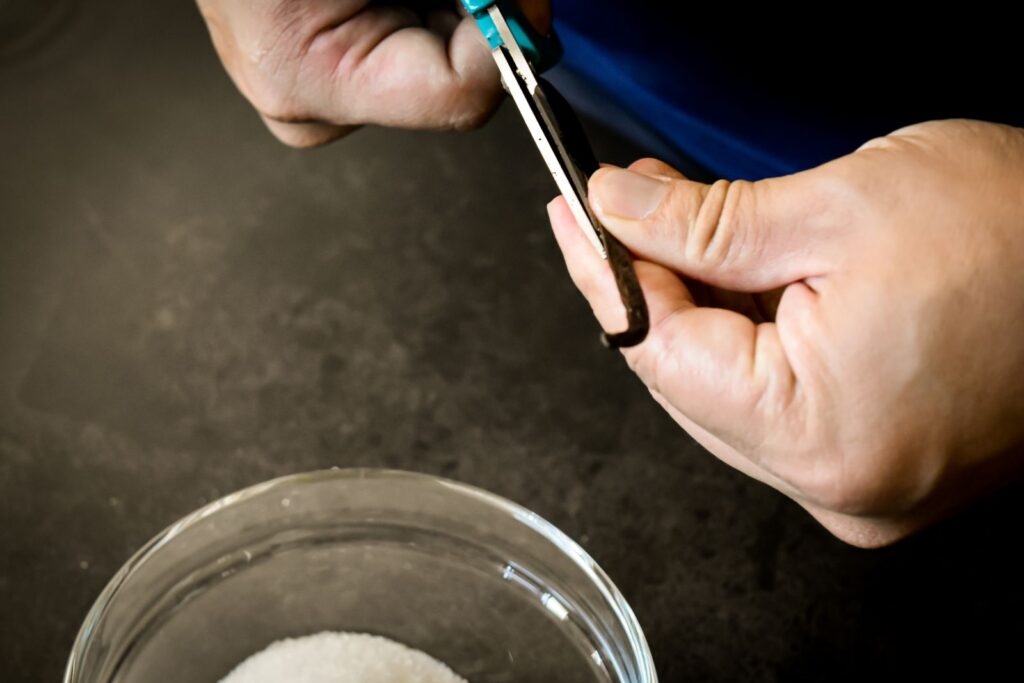
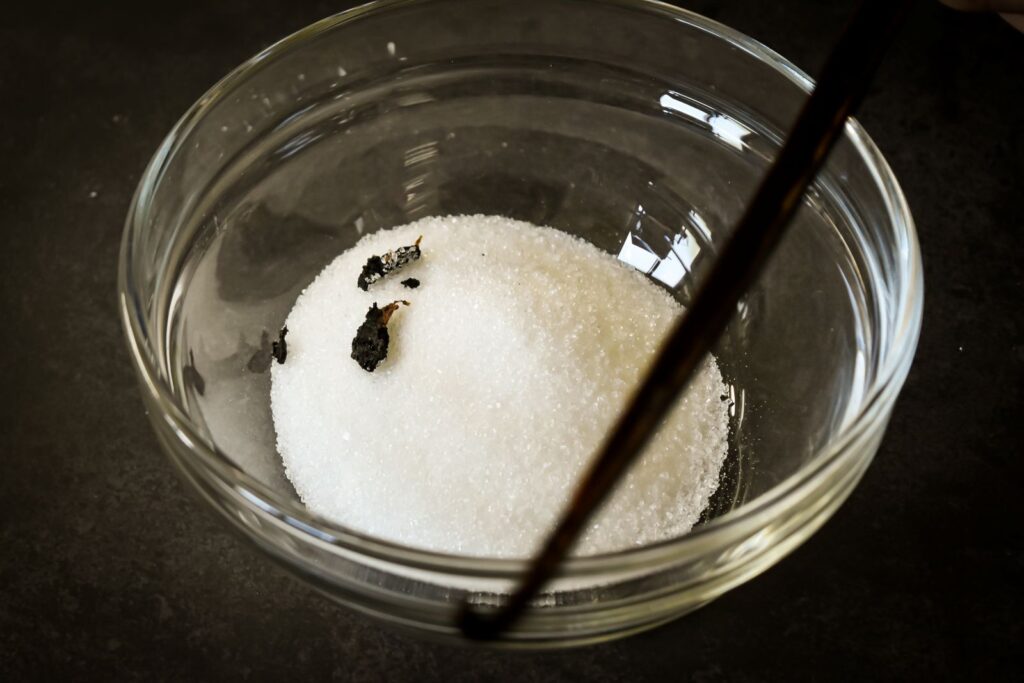
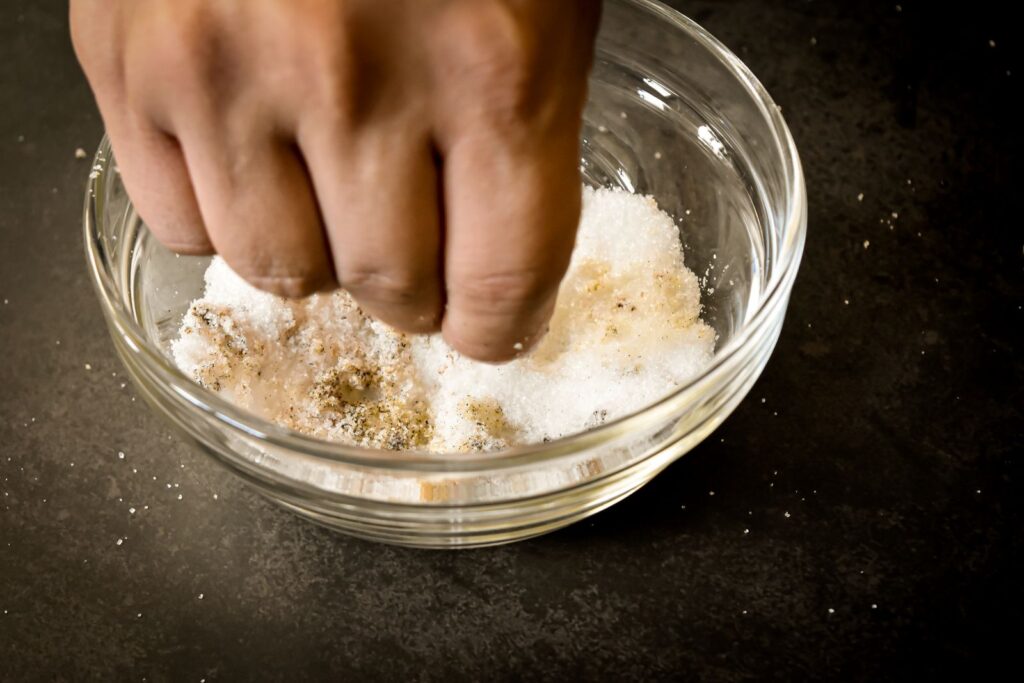
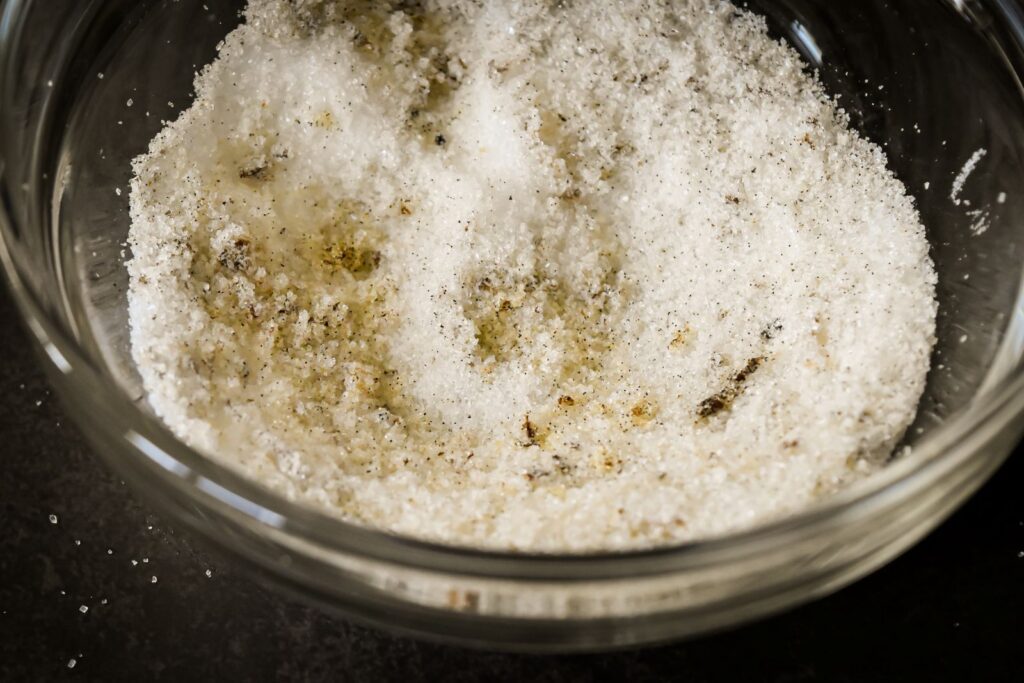
Make Vanilla Sugar
Split the vanilla bean, scrape out the seeds, and mix them thoroughly with sugar. It is recommended to prepare a batch of vanilla sugar in advance for convenient use during baking. If you haven't made vanilla sugar yet, you can use fresh vanilla beans and prepare it on the spot (this method works best in recipes requiring heat to fully release the vanilla aroma).
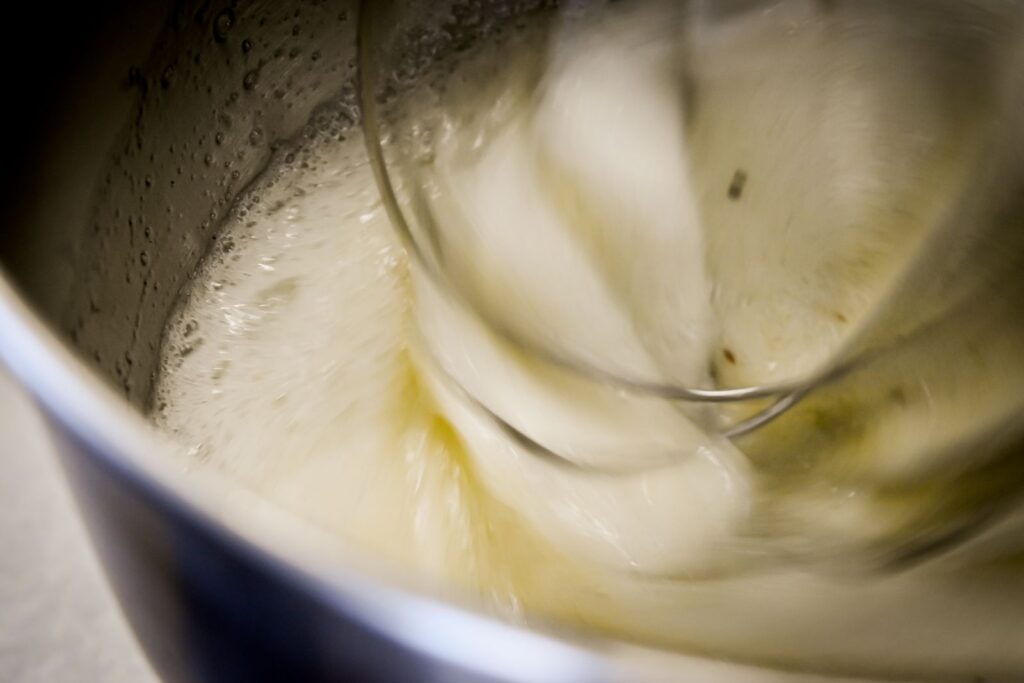
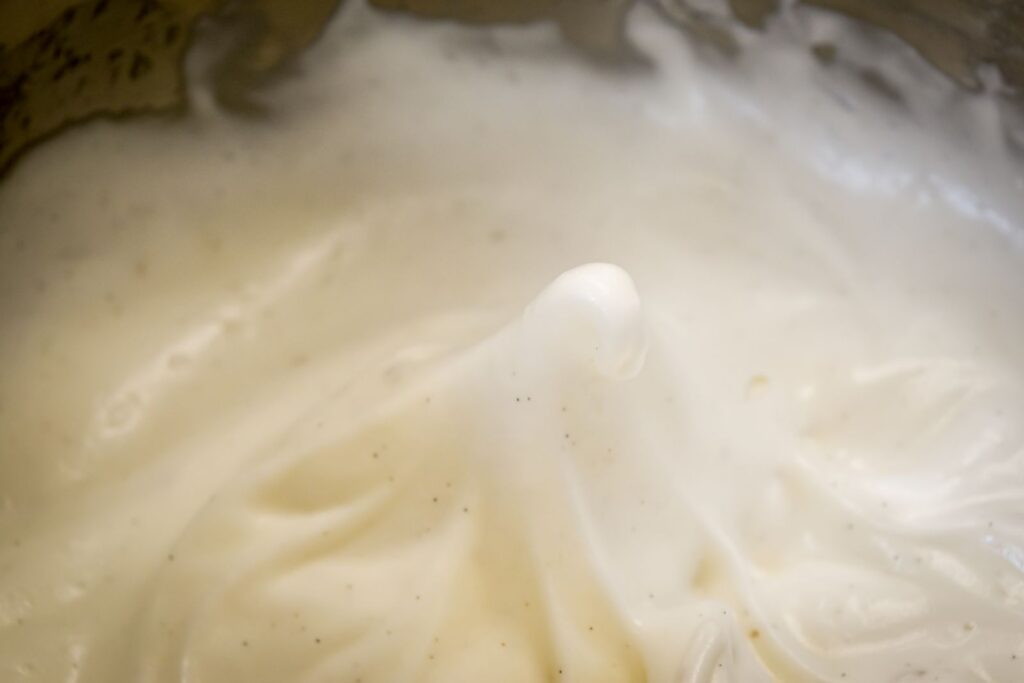
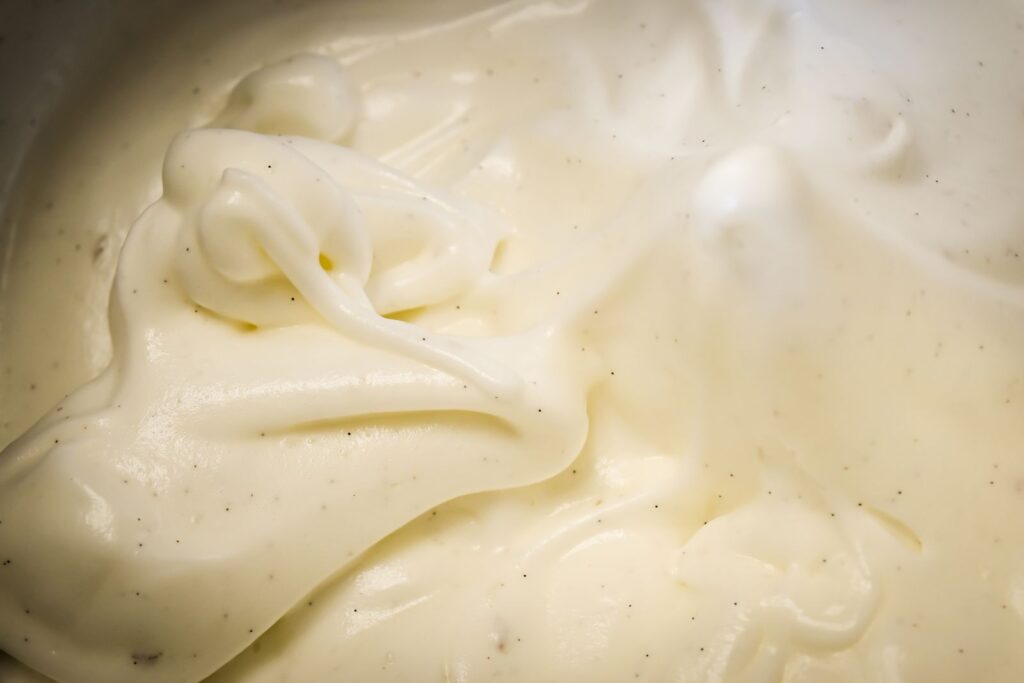
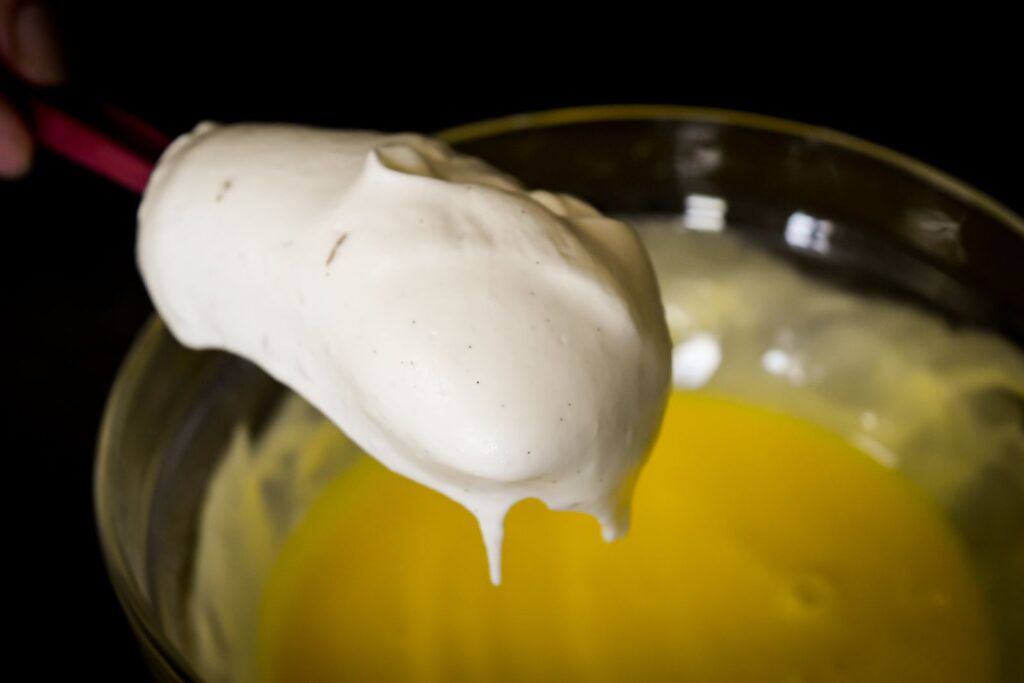
Whip the Egg Whites
Add egg whites, lemon juice, and vanilla sugar to a mixing bowl. Whip the egg whites with a mixer until they reach soft peaks, forming downward-pointing cones.
Lemon juice helps stabilize the egg whites, preventing over-whipping or deflation.
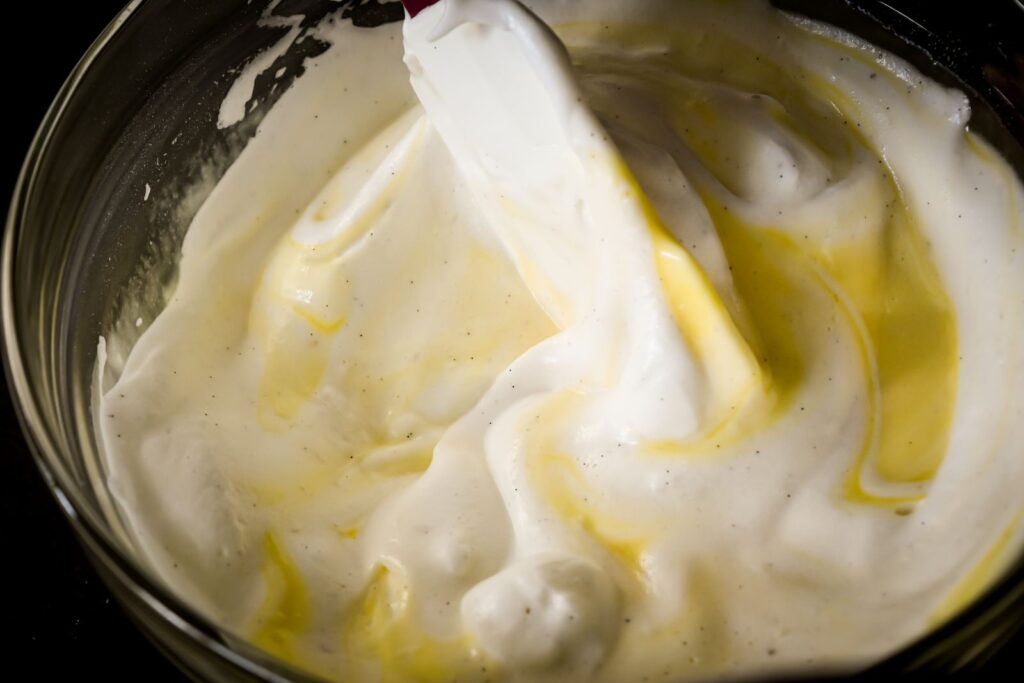
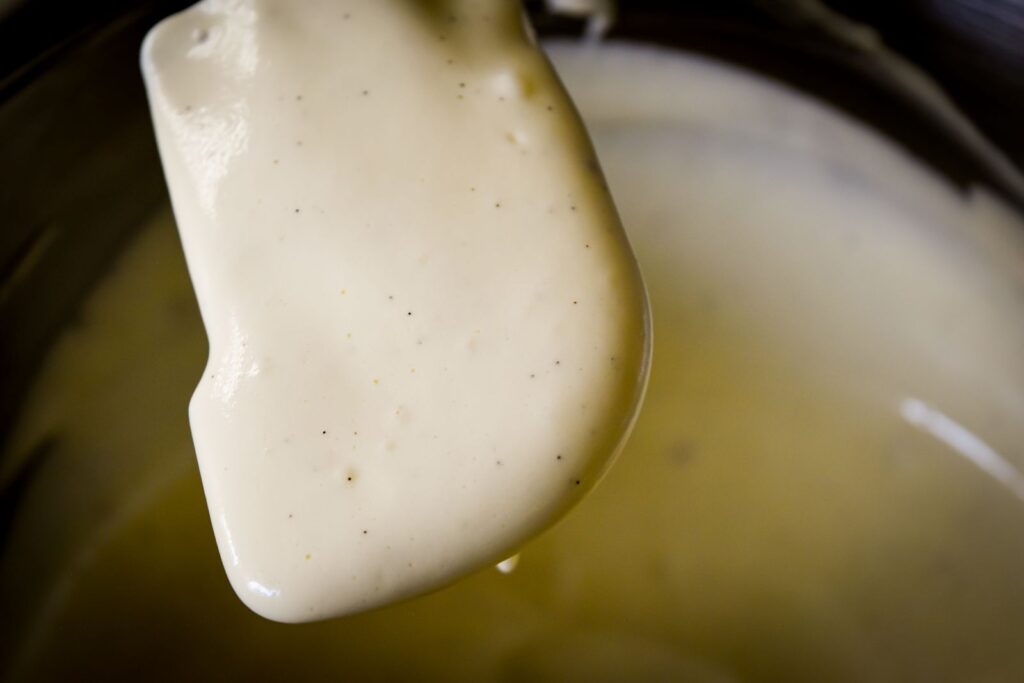
Combine the Egg Whites and Batter
Gently fold the whipped egg whites into the batter using a cut-and-fold method to avoid deflation. Work lightly to retain the air, ensuring a fluffy texture for the cake.
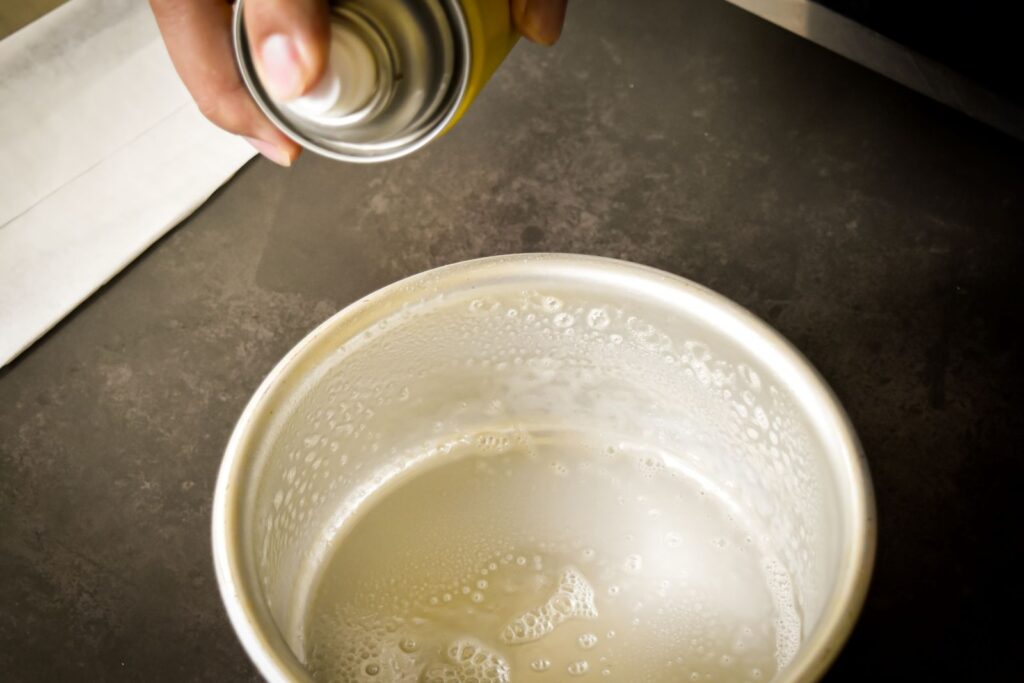
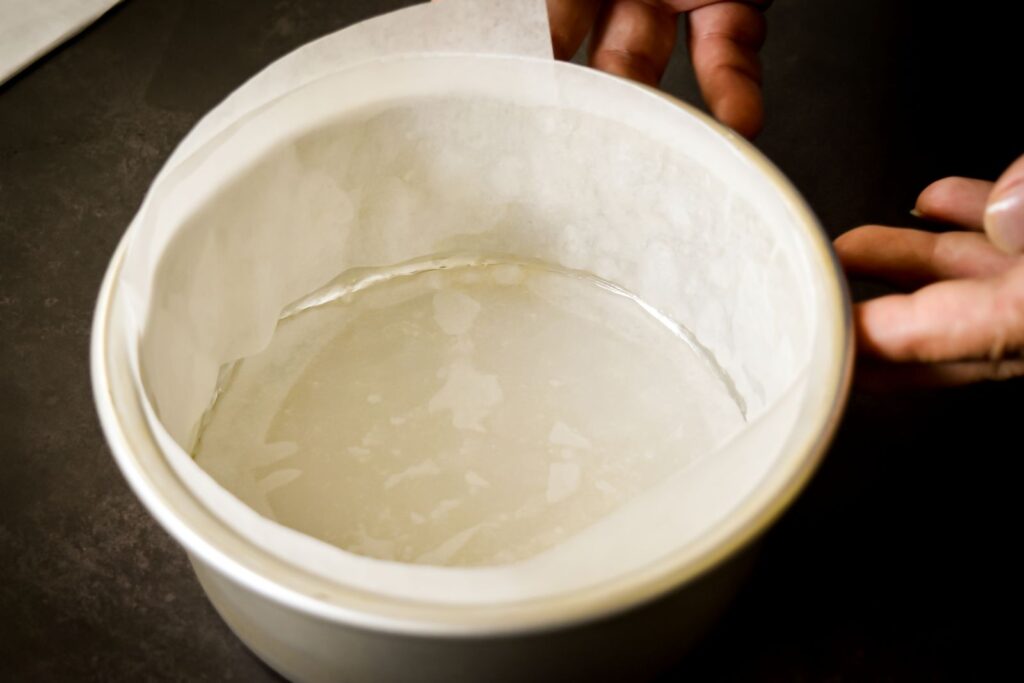
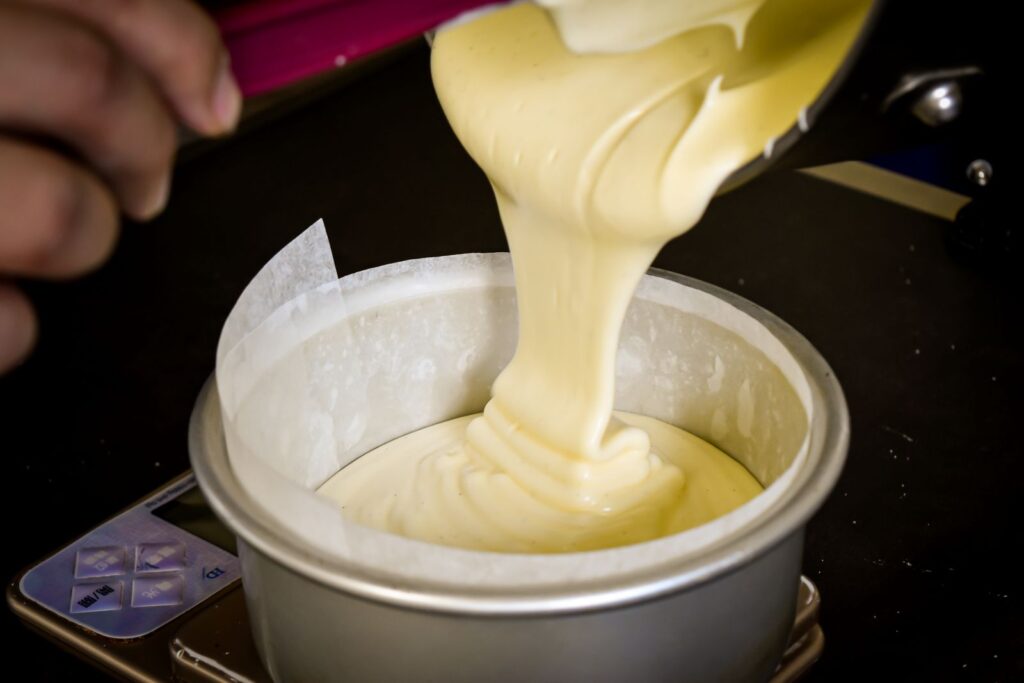
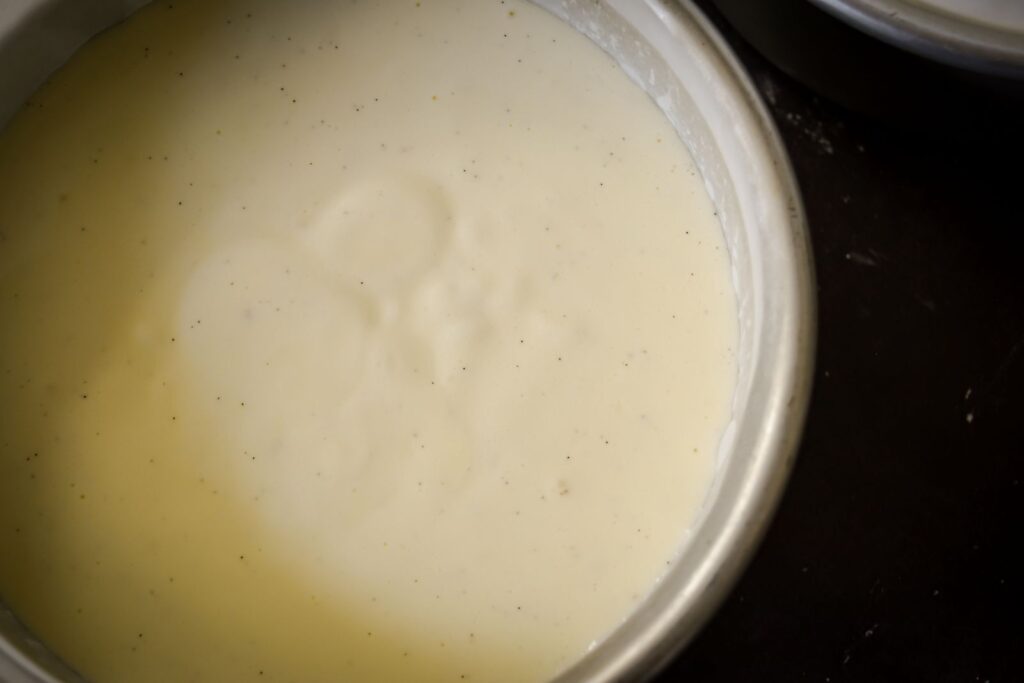
Prepare the Cake Mold
Spray baking oil inside the mold and line it with parchment paper for easy release. Pour the batter into the mold; this recipe makes approximately two 6-inch cakes.
TipTip: Properly preparing the mold prevents the cake from sticking and ensures smooth, intact edges. Da Mai baking oil is recommended.
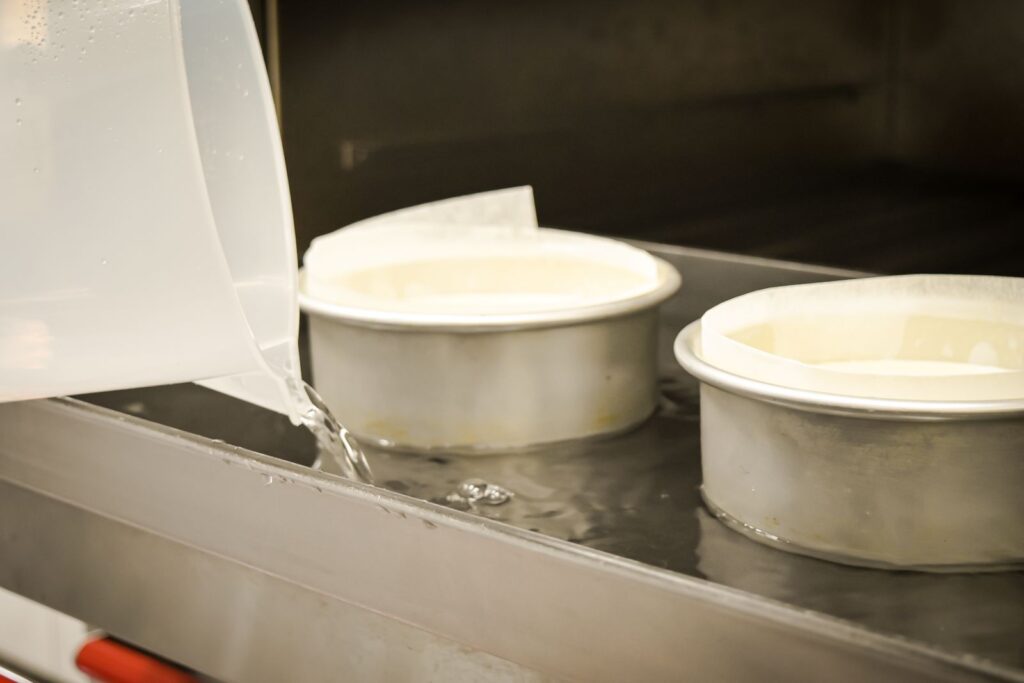
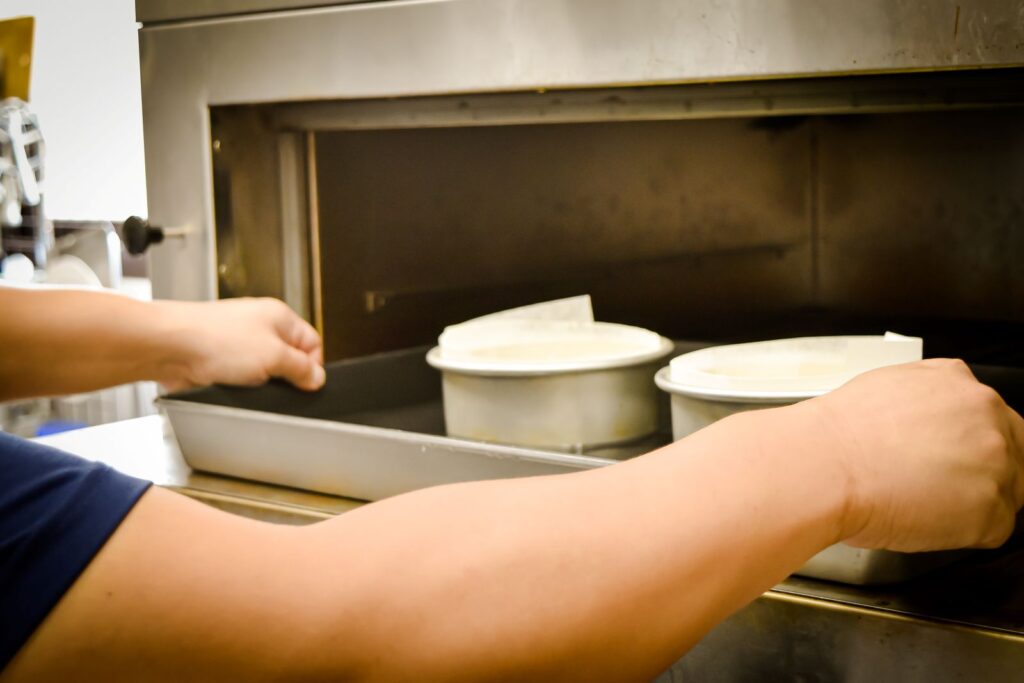
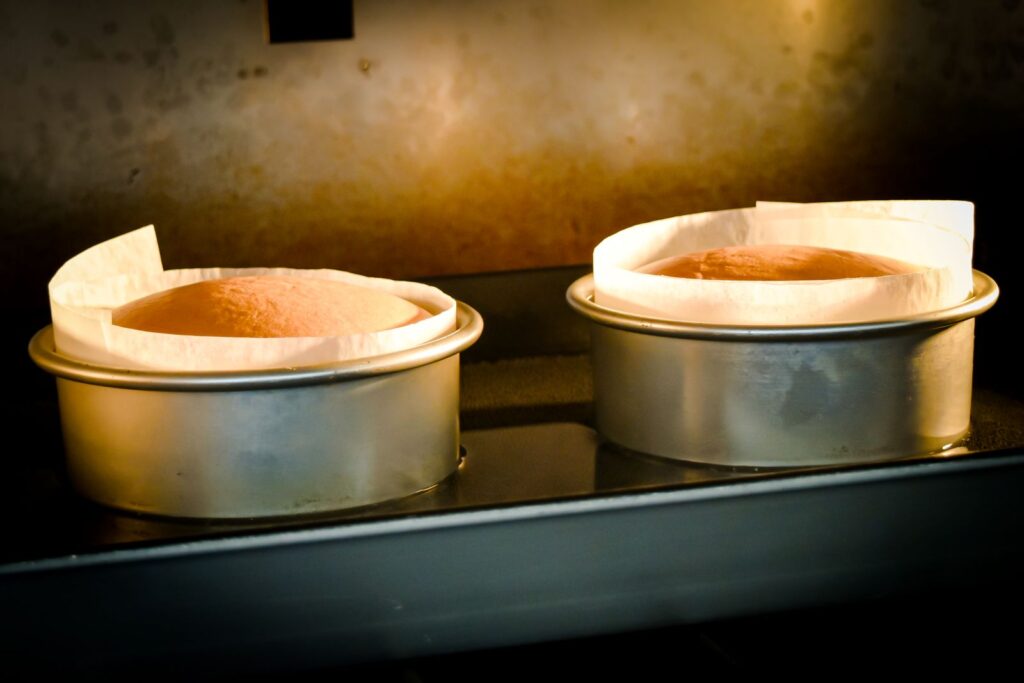
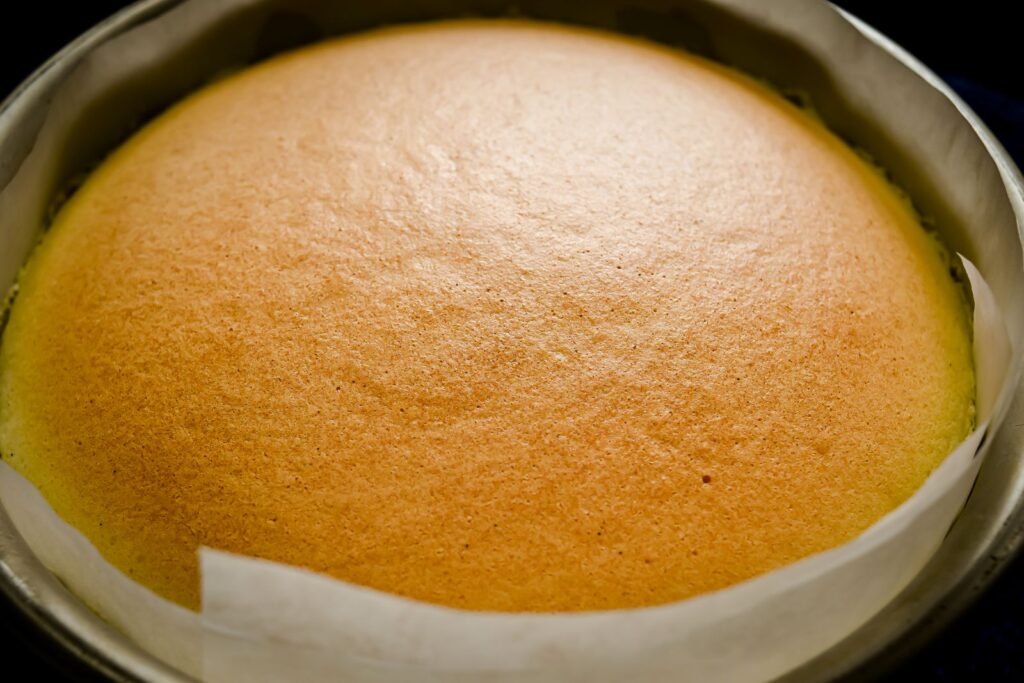
Bake in the Oven
Fill the mold with batter to 80% full. Place it in a deep baking tray, add cold water up to about 1 cm high, and bake at 150°C using a water bath for 1 hour.
Serving and Storing Castella Cake
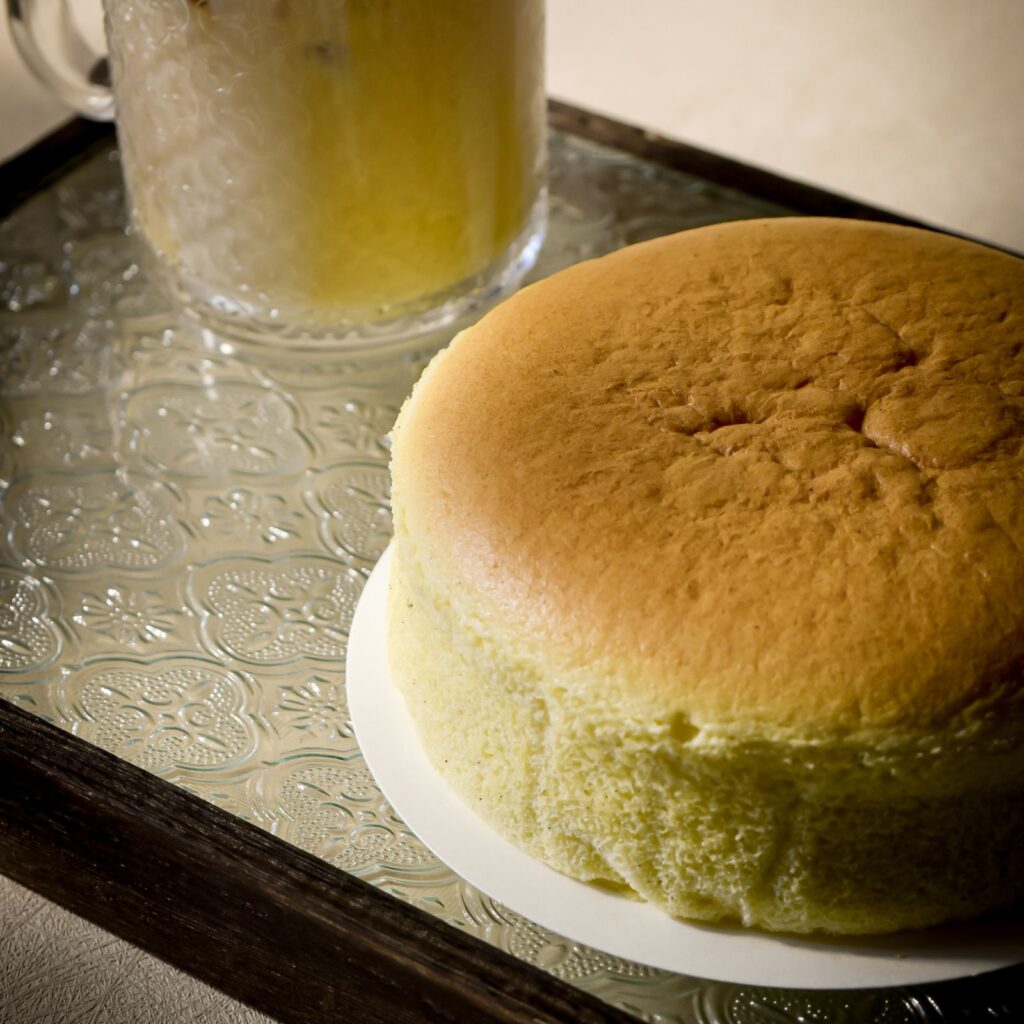
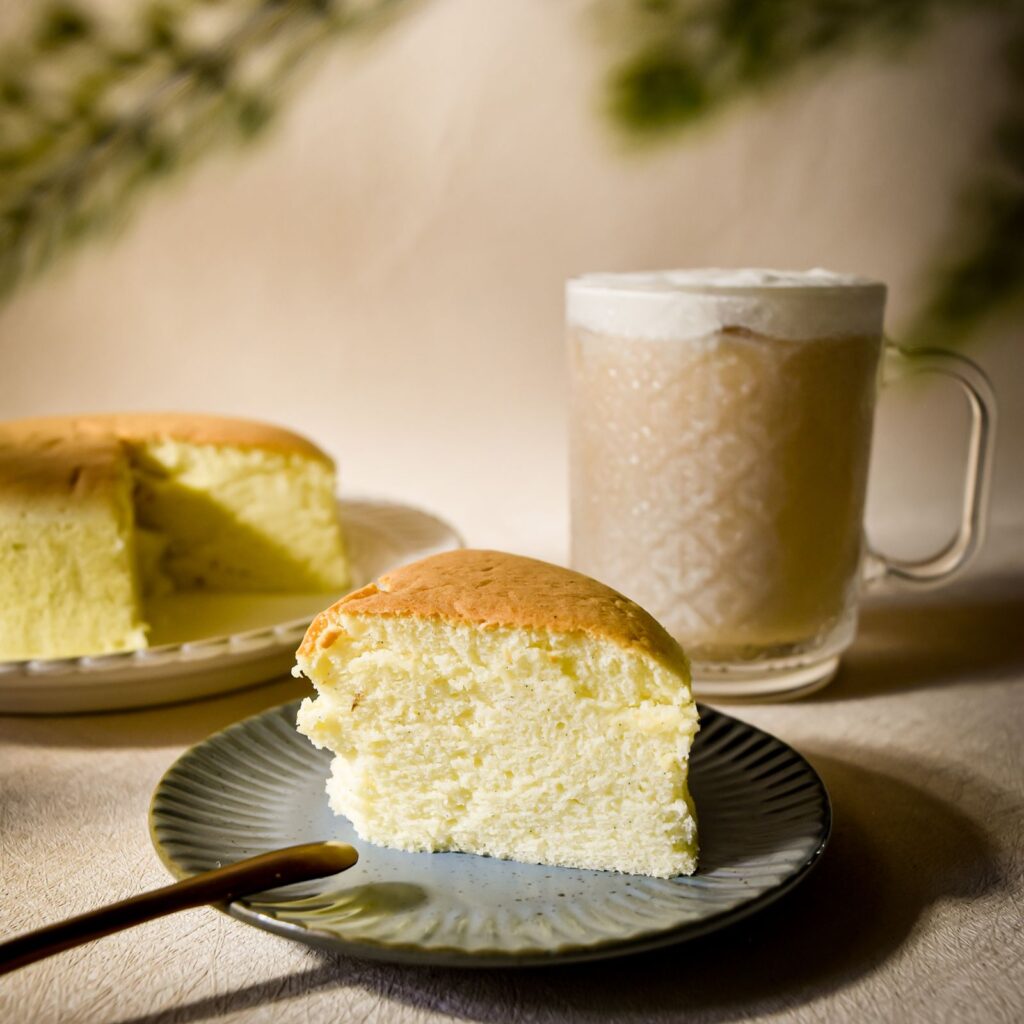
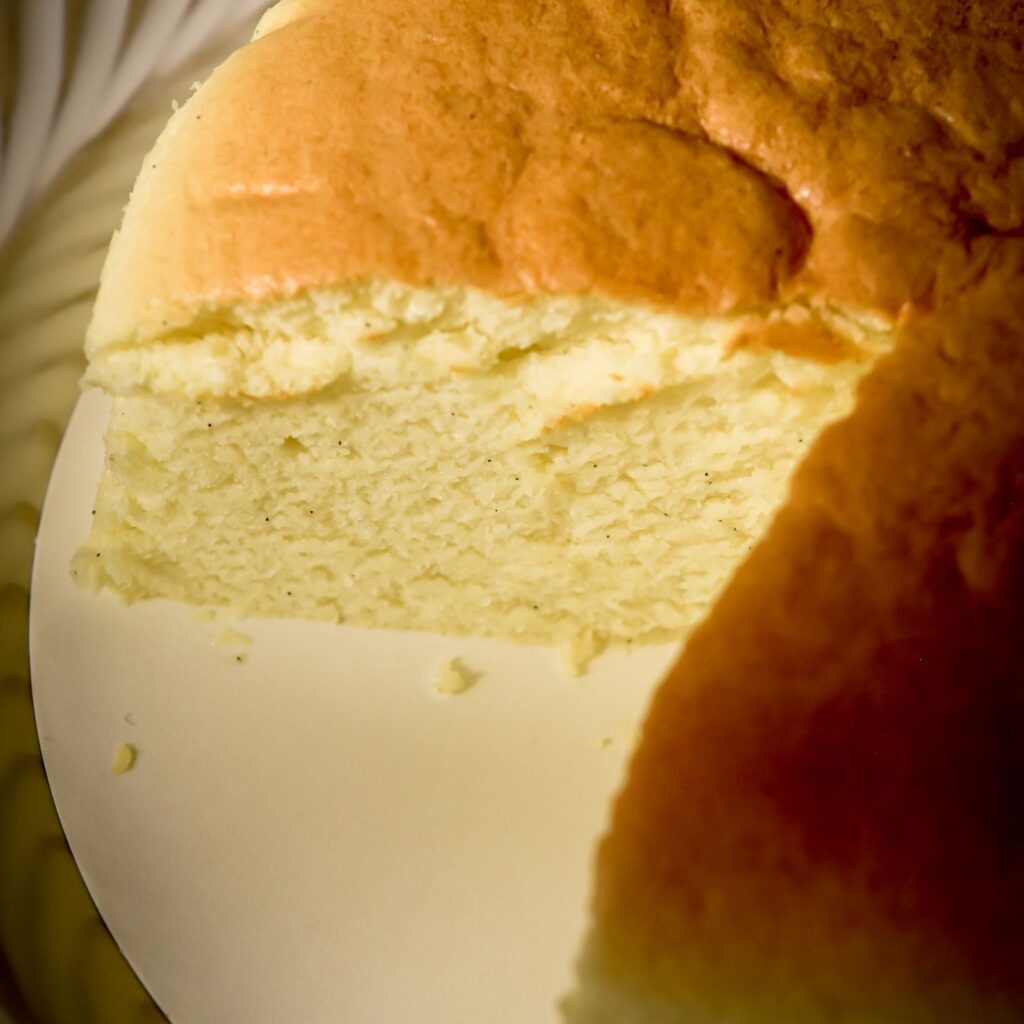
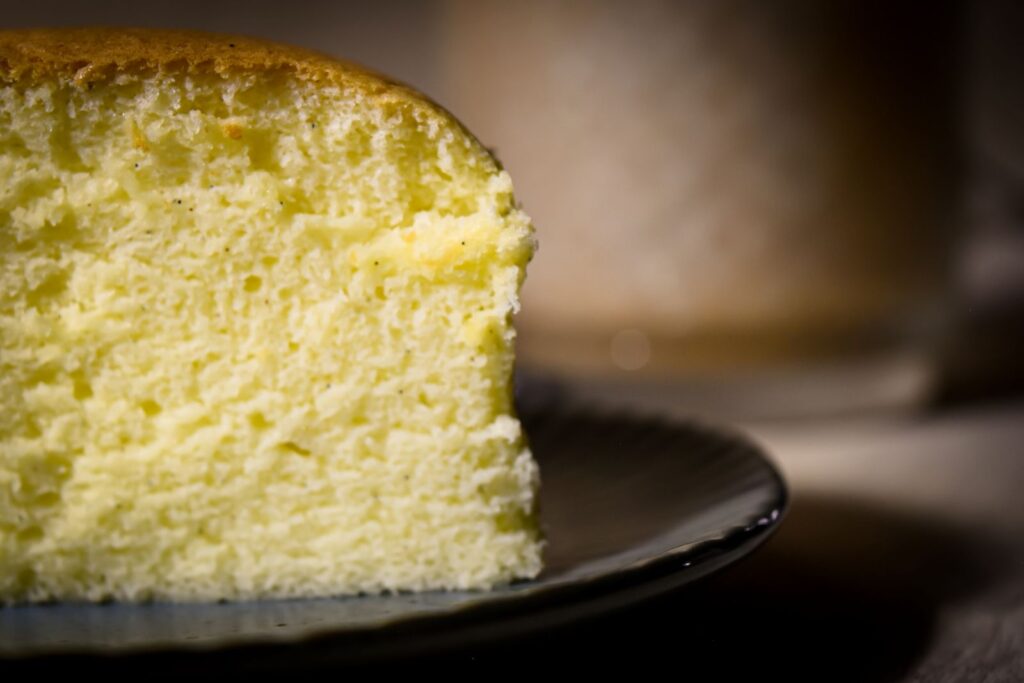
- 食用Serving: Enjoy the cake after it has cooled. Pair it with whipped cream or jam to enhance the flavor.
- 保存Storage: Store in an airtight container and refrigerate for 3-5 days. For longer storage, freeze it for up to 2 weeks. Bring refrigerated cake to room temperature before serving.
About Castella Cake
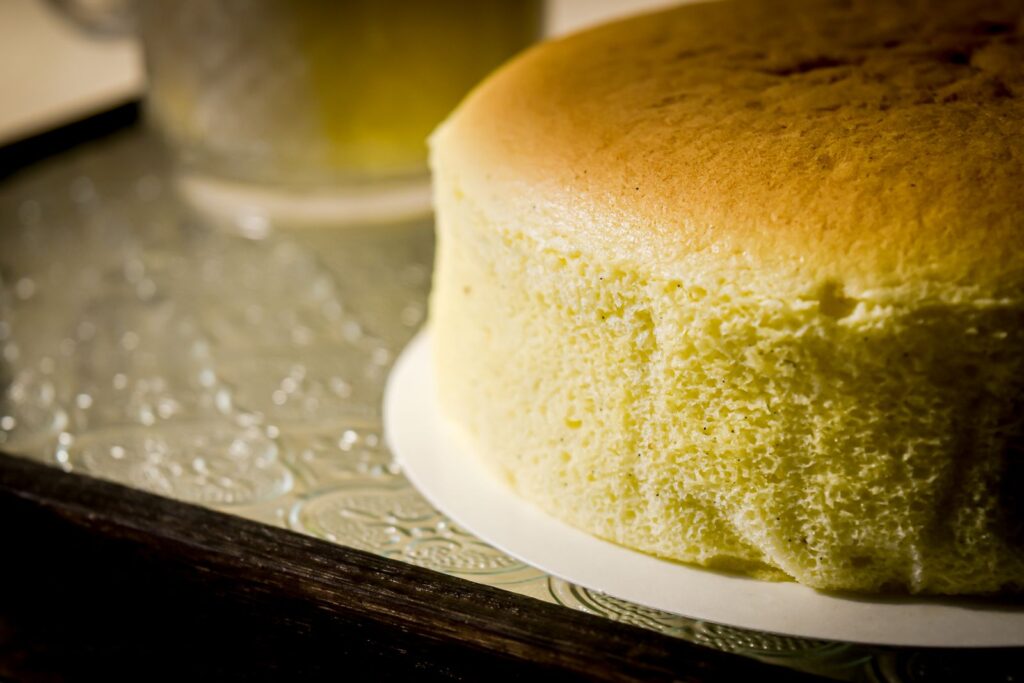
Why does the cake shrink easily?
Over-whipping egg whites or deflation during mixing are the main causes. Pay attention to your mixing technique.
Why does the cake surface crack?
High baking temperature or improper mold preparation may cause cracks. If the temperature is too high, you can slightly open the oven door using an oven mitt to release heat, but extend the baking time accordingly.
Why does the cake have a grainy texture or lack smoothness?
Not sifting the dry ingredients or insufficient mixing can cause a grainy texture. It is recommended to sift all dry ingredients before adding and gently mix to prevent lumps.
Why is the cake bottom wet or sunken?
Excess water in the water bath or deflation of egg whites can result in a wet bottom. Ensure the water level is appropriate and gently mix the egg whites to avoid deflation.
Why does the cake stick to the mold?
Insufficient mold preparation or not using parchment paper may cause the cake to stick. It is recommended to spray oil evenly inside the mold and line it with parchment paper to ensure easy release.
